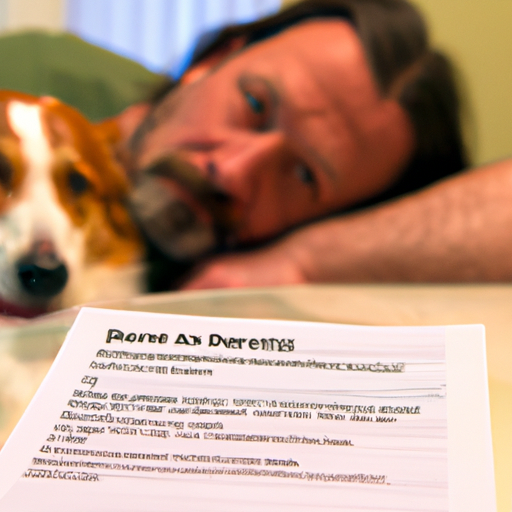As caregivers to our beloved furry friends, it’s important to understand how to help them when they’re in pain. This guide will help you understand the options available to your dog for pain relief.
Understanding Your Dog’s Pain
Just like us, dogs can experience pain for a variety of reasons. They might be injured, have a disease, or be recovering from surgery. It can be hard to tell when your dog is in pain because dogs often hide their discomfort. They’re not like us, they can’t tell you what’s wrong. But, if you notice your dog is acting differently, it might be a sign of pain.
- Changes in behavior (increased aggression or withdrawal)
- Changes in appetite or sleeping patterns
- Limping or difficulty moving
Over-The-Counter Options
Typically, it’s not recommended to give your dog over-the-counter medication without consulting with a vet. Many common human medications can be harmful or even deadly to dogs. However, there are a few exceptions that can be used under the right circumstances.
- Buffered Aspirin
- Baby Aspirin
Note: Always consult with your vet before giving your dog any medication.
Prescription Medications
When over-the-counter options aren’t enough, your vet might prescribe a stronger medication. These can include:
| Medication | Use |
|---|---|
| Rimadyl | Treats arthritis and post-operative pain |
| Tramadol | Used for moderate to severe pain |
| Gabapentin | Primarily used for nerve pain |
Natural Remedies
If you prefer a more natural approach to pain relief, there are options available. These won’t be as strong as prescription medications, but they can provide some relief.
- CBD oil: Known for its anti-inflammatory properties, it can help with joint pain and inflammation.
- Turmeric: An anti-inflammatory and antioxidant that can help with arthritis.
- Glucosamine: A supplement that can help with joint pain in dogs.
Post-Surgical Pain Relief
After surgery, your dog will likely be in pain. Your vet will likely prescribe a pain medication, but there are other things you can do to help your dog recover.
- Provide a quiet and comfortable space for your dog to rest
- Limit physical activity
- Follow your vet’s instructions for wound care
FAQ
Q: Can I give my dog ibuprofen?
A: No, ibuprofen can be toxic to dogs and should be avoided.
Q: How can I tell if my dog is in pain?
A: Changes in behavior, appetite, or movement can indicate your dog is in pain.
Q: What natural remedies can I use for my dog’s pain?
A: CBD oil, turmeric, and glucosamine are all natural remedies that can help with pain relief.
Q: What should I do after my dog has surgery?
A: Follow your vet’s instructions, provide a comfortable resting space, and limit physical activity.
Remember, always consult with a vet if you believe your dog is in pain. They can provide the best advice and treatment options for your dog’s specific situation.



